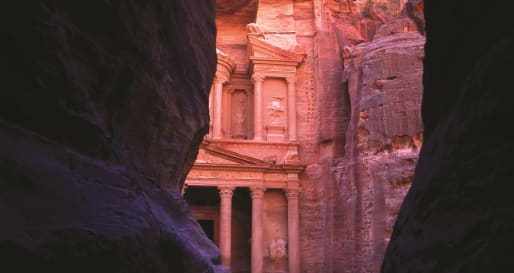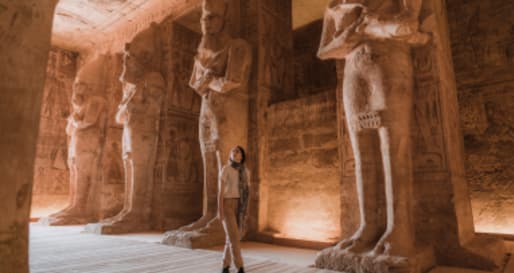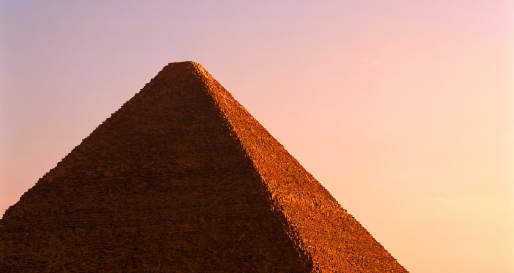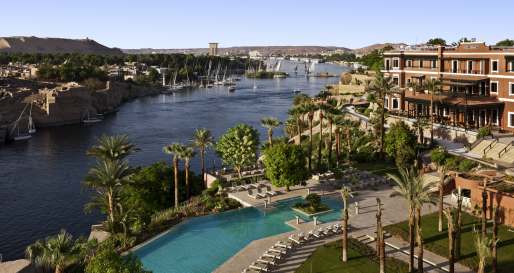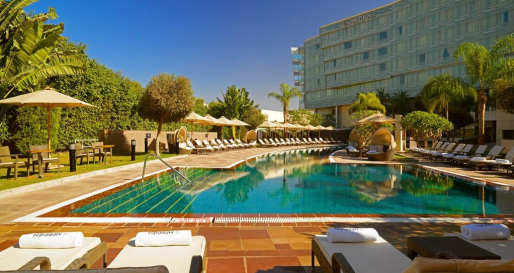Abu Simbel's Colossal Temple
Often considered the most impressive monument in Egypt after the Great Pyramids, visit the colossus temple of Ramses II, set by Lake Nasser. The four breathtaking statues in front of the temple are spectacular examples of ancient Egyptian art.

Area
Abu Simbel
Type
Art & Architecture
History
Grade
Once-in-a-lifetime
Who
Adults
Difficulty
Moderate
Duration
Full Day
The great temples of Abu Simbel in Southern Egypt have captivated generations of travellers. When Florence Nightingale visited in 1850, she wrote that the temples "make the impression on one that a thousand voices do...the temple of Ipsamboul [Abu Simbel] is the only thing that has ever made an impression upon me like that of St. Peter’s, yet how different".
Built by the Pharaoh Ramses II 30 centuries ago to impress his Nubian subjects with Egyptian power, the façade of the main rock-cut temple is dominated by four colossal statues of the king, each 20 metres high, with Nubians, his mother, and several of his children at his feet! The site is remarkably well preserved, having been largely covered by sand for many centuries. It was rediscovered for the West by the Swiss Explorer Johann Ludwig Burckhardt in 1813. Then, in the 1960s, the temple was rescued from the rising waters of Lake Nasser and moved to its present position, 65 meters higher than the original site. Abu Simbel is undeniably one of the greatest monuments in Egypt.
Tours Featuring This Experience
Be inspired by the itineraries below which include this experience and let our travel specialists craft a bespoke luxury holiday for you.
Recommended Hotels Nearby
A selection of luxury hotel options in the area, handpicked and recommended by our travel specialists.
More Experiences in This Area
Discover more things to do in the area and chat to our specialists about crafting these experiences into your tailor-made holiday.
Call us on 212 372 7009 to start planning your holiday
Why Scott Dunn for Luxury Experiences?
Unique to You

- We listen to your travel goals and craft unique trips that are bespoke to you.
- We’re with you every step of your life’s travel journey, from honeymoons to family trips and beyond.
Seamless Service

- Global offices in the UK, US, and Singapore for 24/7 seamless service.
- We offer flexibility if your plans change so you can book with confidence and peace of mind.
Carefully Curated Collection
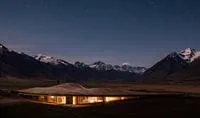
- We’ve curated an elevated collection of accommodation, experiences, and guides.
- Committed to fostering close global relationships to continue bringing you unique experiences.
Luxury in Every Sense

- We deliver a sense of luxury that matters most to you.
- Awarded Condé Nast Traveller’s Top Travel Specialists in the World 12 years in a row.

